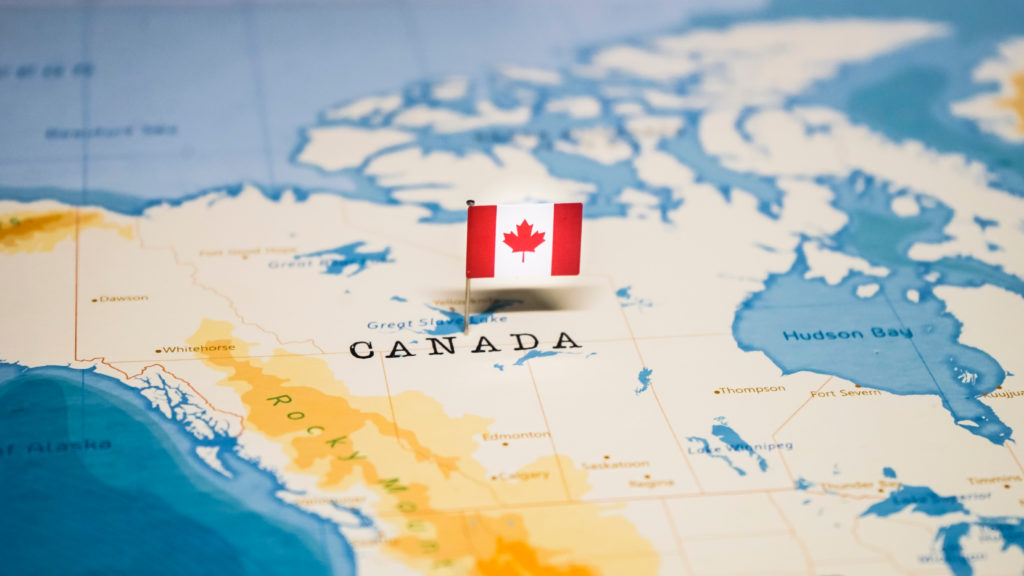Canada’s Population Is Rising Rapidly
Immigration is driving Canada’s rapid population growth, which is outpacing the other G7 countries.
During the five-year period from 2016 to 2021, an additional 1.8 million people were living in Canada; an increase of 5.2 percent.
Canada’s population reached 37 million in 2021 and in early 2022 is already above 38 million residents.
By comparison, the population of the United States rose 2.6 percent during the same time frame; France had a 1.2 percent growth rate; and Germany’s population went up only 1.0 percent.
In Japan, another G7 country, the population decreased by 1.3 percent, while Italy’s population shrank by 2.0 percent.

According to the data, 80 percent of Canada’s population growth comes from immigration, while 20 percent is caused by babies being born in Canada.
Yukon lead the other Canadian provinces and territories with its population jumping 12.1 percent from 2016 to 2021.
The second highest rate of population growth in Canada was Prince Edward Island with an 8.0 percent increase, followed by British Columbia (7.6 percent), Ontario (5.8 percent), Manitoba and Nova Scotia (both 5.0 percent), Alberta (4.8 percent), Quebec (4.1 percent), New Brunswick (3.8 percent), Saskatchewan (3.1 percent) and Nunavut (2.5 percent).
The population of Newfoundland and Labrador decreased by 1.8 percent during 2016-2021, while Northwest Territories had 1.7 percent fewer residents.
The top 10 Canadian cities or towns with the biggest population increases between 2016 and 2021 were: Squamish, British Columbia (21.8 percent); Wasaga Beach, Ontario (20.3 percent); Tillsonburg, Ontario (17.3 percent); Canmore, Alberta (14.3 percent); Kelowna, British Columbia (14.0 percent); Collingwood, Ontario (13.8 percent); Woodstock, Ontario (13.6 percent); Whitehorse, Yukon (13.1 percent); Chilliwack, British Columbia (12.1 percent); and Cowansville, Quebec (11.6 percent).
According to Census data, the Toronto metropolitan area is the #1 most populous metro area in Canada, boasting a population of 6.2 million people, while the Montreal metro area came in 2nd place with 4.2 million and 3rd place went to the Vancouver metro area with 2.6 million residents.
Not only does immigration to Canada account for 80 percent of the country’s population increase, but it is also responsible for 100 percent of Canadian job growth.
Canada has the 10th largest economy in the world and it is continuing to expand and produce thousands of Canadian jobs.
In fact, there are approximately 900,000 Canadian job openings, but there are not enough qualified workers in Canada to fill them all.
A key reason for such a large worker shortage is that millions of Canadian “baby boomers” are retiring this decade, but there are not enough younger workers available to replace them.
This is because Canada’s fertility rate has been going down and not enough young Canadians are training for the skills that employers are looking for.
In sum, the number of new jobs in Canada is going up, even as the number of Canadian workers is going down, resulting in a huge gap.

The solution to the shortage of workers is Canadian immigration – welcoming thousands and thousands of skilled immigrants along with their families to fill these job vacancies each year.
Canada’s government is aware of the important role that skilled immigrants play in keeping the country’s economy expanding, which is why the number of foreign workers who are allowed to move to Canada as permanent residents is skyrocketing past 400,000 per year.
This is also why Canada is leading the other prosperous G7 countries in population growth – immigrants are moving to Canada by the thousands.
How would you like to contribute to Canada’s rapid population growth by joining the more than 400,000 immigrants who will become Canadian permanent residents during 2022?
Are you interested in filling one of the 900,000 jobs in Canada that are currently available?
Canadian Visa Expert collaborates with a team of authorized immigration consultants who can evaluate your details and inform you about your options for immigration to Canada.
The authorized immigration consultants can also guide you through each step of the Canadian immigration process, so it will be easier for you to correctly complete.
You can take the first step in the process today, by registering to receive your personal eligibility assessment.
DISCLAIMER: This guide is not and shall not be considered as professional or expert advice.
